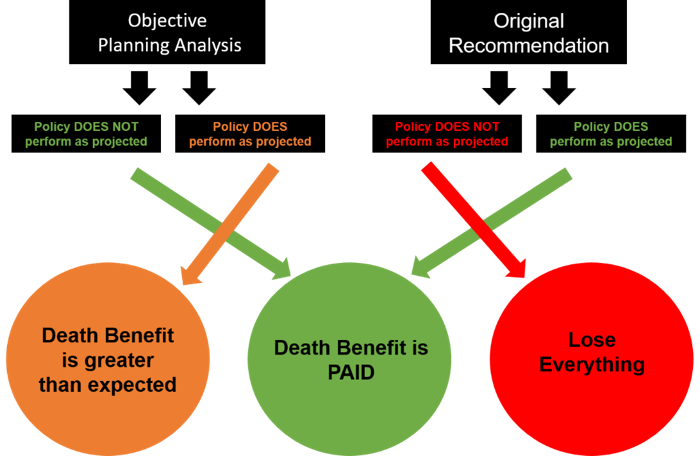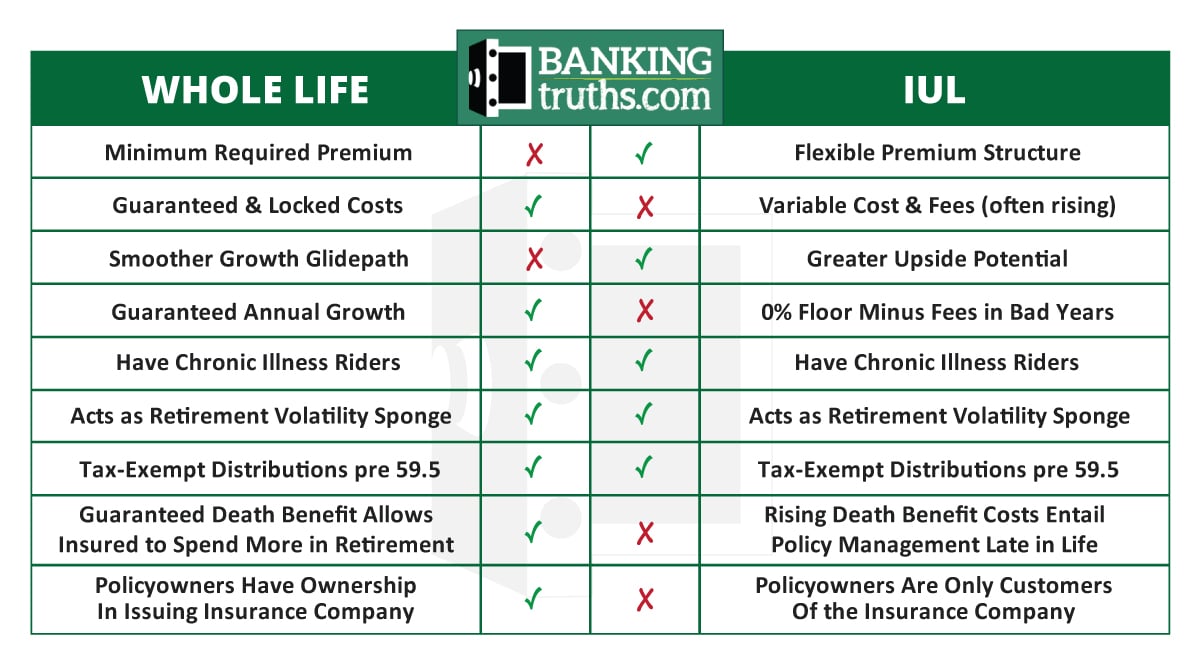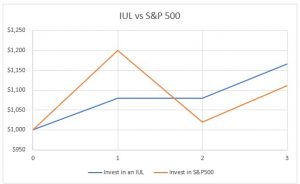All Categories
Featured
Table of Contents
1), frequently in an effort to defeat their group standards. This is a straw man debate, and one IUL individuals enjoy to make. Do they compare the IUL to something like the Vanguard Total Supply Market Fund Admiral Show to no load, an expenditure ratio (ER) of 5 basis factors, a turn over proportion of 4.3%, and an outstanding tax-efficient record of distributions? No, they contrast it to some dreadful proactively handled fund with an 8% lots, a 2% EMERGENCY ROOM, an 80% turn over proportion, and a terrible record of short-term resources gain distributions.
Shared funds commonly make yearly taxable circulations to fund proprietors, also when the worth of their fund has gone down in value. Common funds not only require earnings reporting (and the resulting yearly taxation) when the mutual fund is rising in worth, but can likewise enforce income tax obligations in a year when the fund has gone down in value.
That's not how common funds function. You can tax-manage the fund, gathering losses and gains in order to minimize taxed circulations to the investors, yet that isn't somehow mosting likely to transform the reported return of the fund. Only Bernie Madoff kinds can do that. IULs stay clear of myriad tax traps. The possession of common funds might call for the mutual fund proprietor to pay projected taxes.

IULs are very easy to position so that, at the owner's death, the beneficiary is exempt to either revenue or estate taxes. The very same tax decrease methods do not work virtually too with common funds. There are many, often expensive, tax traps linked with the timed trading of common fund shares, traps that do not relate to indexed life Insurance.
Chances aren't really high that you're going to undergo the AMT due to your mutual fund distributions if you aren't without them. The remainder of this one is half-truths at best. For example, while it holds true that there is no income tax obligation as a result of your successors when they acquire the profits of your IUL policy, it is likewise true that there is no income tax obligation as a result of your successors when they inherit a common fund in a taxed account from you.
Universal Life Tools
There are better methods to prevent estate tax problems than getting investments with low returns. Common funds may create earnings tax of Social Safety advantages.

The growth within the IUL is tax-deferred and might be taken as tax free revenue via financings. The policy proprietor (vs. the common fund manager) is in control of his/her reportable income, therefore allowing them to reduce or also remove the tax of their Social Protection advantages. This one is terrific.
Here's another minimal concern. It holds true if you buy a shared fund for state $10 per share prior to the circulation day, and it disperses a $0.50 circulation, you are then mosting likely to owe tax obligations (most likely 7-10 cents per share) in spite of the truth that you haven't yet had any kind of gains.
In the end, it's actually concerning the after-tax return, not just how much you pay in taxes. You're additionally possibly going to have even more money after paying those tax obligations. The record-keeping requirements for having mutual funds are significantly much more complex.
With an IUL, one's documents are kept by the insurer, duplicates of annual declarations are sent by mail to the owner, and distributions (if any kind of) are amounted to and reported at year end. This is also sort of silly. Naturally you need to maintain your tax documents in case of an audit.
Index Linked Insurance
All you have to do is shove the paper into your tax folder when it reveals up in the mail. Barely a reason to acquire life insurance. It's like this man has never ever invested in a taxed account or something. Shared funds are generally component of a decedent's probated estate.
Additionally, they go through the delays and expenditures of probate. The earnings of the IUL plan, on the various other hand, is constantly a non-probate distribution that passes outside of probate straight to one's called recipients, and is as a result not subject to one's posthumous financial institutions, unwanted public disclosure, or similar delays and expenses.
We covered this under # 7, however simply to evaluate, if you have a taxed common fund account, you must put it in a revocable count on (or perhaps easier, use the Transfer on Death classification) in order to prevent probate. Medicaid disqualification and life time income. An IUL can supply their proprietors with a stream of earnings for their whole life time, despite how much time they live.

This is useful when arranging one's affairs, and converting properties to earnings prior to an assisted living home arrest. Shared funds can not be converted in a comparable fashion, and are usually considered countable Medicaid assets. This is one more silly one advocating that poor individuals (you understand, the ones that require Medicaid, a government program for the poor, to spend for their assisted living facility) ought to utilize IUL rather of mutual funds.
Iul Marketing
And life insurance looks dreadful when contrasted rather versus a retired life account. Second, people who have cash to acquire IUL above and beyond their retired life accounts are mosting likely to have to be dreadful at taking care of cash in order to ever receive Medicaid to pay for their assisted living facility costs.
Persistent and incurable disease cyclist. All plans will permit an owner's very easy accessibility to cash from their plan, frequently forgoing any type of abandonment charges when such people suffer a significant disease, require at-home treatment, or come to be confined to an assisted living facility. Shared funds do not offer a similar waiver when contingent deferred sales fees still put on a mutual fund account whose owner needs to market some shares to money the prices of such a remain.
Index Universal Life Insurance Calculator
You obtain to pay more for that advantage (cyclist) with an insurance coverage policy. Indexed universal life insurance offers fatality benefits to the beneficiaries of the IUL proprietors, and neither the proprietor neither the beneficiary can ever lose money due to a down market.
Now, ask on your own, do you really need or want a death benefit? I definitely don't need one after I reach financial independence. Do I want one? I expect if it were affordable enough. Certainly, it isn't inexpensive. Usually, a purchaser of life insurance spends for the true cost of the life insurance policy benefit, plus the expenses of the policy, plus the profits of the insurance policy business.
Ul Mutual Insurance
I'm not completely certain why Mr. Morais included the entire "you can not shed money" again below as it was covered rather well in # 1. He just wished to repeat the most effective marketing factor for these points I mean. Again, you do not lose nominal dollars, but you can lose real dollars, along with face serious opportunity price due to low returns.

An indexed global life insurance policy proprietor might trade their policy for a completely various policy without triggering revenue tax obligations. A mutual fund proprietor can stagnate funds from one shared fund business to one more without marketing his shares at the former (hence causing a taxable occasion), and redeeming brand-new shares at the latter, typically subject to sales fees at both.
While it holds true that you can trade one insurance coverage policy for an additional, the factor that individuals do this is that the first one is such a horrible plan that also after purchasing a brand-new one and undergoing the early, adverse return years, you'll still appear ahead. If they were sold the ideal plan the initial time, they shouldn't have any wish to ever trade it and experience the very early, negative return years once again.
Latest Posts
Equity Indexed Universal Life
Indexation Insurance
Universal Retirement Protection